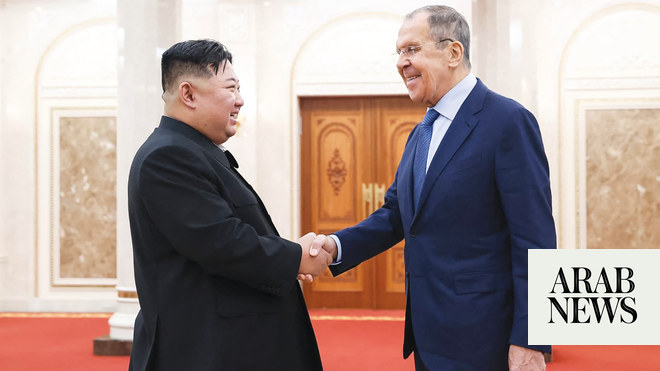
South Korea announced on Tuesday its readiness to hold talks with the North ahead of next month’s Winter Olympics, a day after Kim Jong Un said he was open to negotiations.
“We look forward to candidly discussing interests from both sides face-to-face with North Korea along with the North’s participation in the Pyeongchang Winter Olympics,” Unification Minister Cho Myong-gyon told reporters.
“I repeat, the government is open to talking with North Korea, regardless of time, location and form.”
Kim said on Monday said he was open to negotiations, but that North Korea would push ahead with “mass producing” nuclear warheads.
The offer for high-level talks next Tuesday had been discussed with the United States, the South’s unification minister said, while a decision on whether to push back a massive joint military drill between South Korea and the United States until after the Olympics was pending.
Tension has been rising over North Korea’s nuclear and missile programs, which it pursues in defiance of years of UN Security Council resolutions, with bellicose rhetoric coming from both Pyongyang and the White House. The North sees the regular war drills between the South and the United States as preparations for war.
Cho said he expects the dialogue at the border village of Panmunjom, if it happens, to be focused on North Korea’s participation at the Olympics in February, but other issues would likely arise, including the decentralization of North Korea.
Should the talks be held on January 9, it would be the first such dialogue since a vice-ministerial meeting in December 2015.
The offer landed after a New Year’s Day speech by Kim who said he was “open to dialogue” with Seoul, and for North Korean athletes to possibly take part in the Winter Games, but he persistently declared North Korea a nuclear power.
“North Korea’s participation in the Winter Games will be a good opportunity to showcase the national pride and we wish the Games will be a success. Officials from the two Koreas may urgently meet to discuss the possibility,” Kim said.
After welcoming Kim’s address, South Korean President Moon Jae-in had asked his government earlier in the day to move as quickly as possible to bring North Korea to the Olympics. North Korea did not immediately react.
Chinese Foreign Ministry spokesman Geng Shuang said the recent positive comments from both sides about improving relations, and Kim’s remarks about participating in the upcoming Olympics, were a “good thing”.
“China welcomes and supports North Korea and South Korea taking earnest efforts to treat this as an opportunity to improve mutual relations, promote the alleviation of the situation on the Korean peninsula and realize denuclearization on the peninsula.”
Chun Yung-woo, a former South Korean national security adviser, said Seoul should have taken more time before reacting to Kim’s comments.
“I regret the government had even lost the flexibility to spend one day or two taking a deep breath and meticulously analyzing Kim Jong Un’s ulterior motive before hastily issuing a welcoming statement,” he said.
“The government will have to strive more to come up with a countermeasure not to get caught in a trap set by Kim Jong Un.”
Choi Moon-soon, governor of Gangwon Province where the Olympics are to be held next month, has proposed South Korea send cruise ships to bring North Korean athletes and officials to Pyeongchang, according to South Korean media.
Choi met North Korean sports official Mun Woong in China on December 18 on the sidelines of an international youth football tournament where North and South Korea football teams competed, the Dong-A Ilbo newspaper reported.
Analysts said Kim may be trying to drive a wedge between Seoul and its ally Washington in a bid to reduce international isolation and sanctions against North Korea.
Talks could provide a temporary thaw in strained inter-Korean ties, but conservative critics worry that they may only earn the North time to perfect its nuclear weapons.
After the Olympics, inter-Korean ties could become frosty again because the North has made it clear it has no intention of accepting international calls for nuclear disarmament and instead wants to bolster its weapons arsenal in the face of what it considers increasing US threats.
"Kim Jong Uns strategy remains the same. Hes developing nukes while trying to weaken international pressure and the South Korea-US military alliance and get international sanctions lifted," said Shin Beomchul of the Seoul-based Korea National Diplomatic Academy.
He said the North might also be using its potential Olympic participation as a chance to show its nuclear program is not intended to pose a threat to regional peace.












